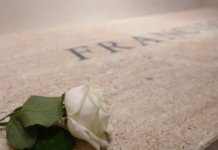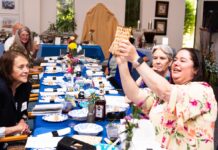
Many years ago I worked in international adoption and humanitarian aid. There was a hospital in Guatemala for children with cancer. It was the only hospital in the country and the number of children who came and went was overwhelming. It became a magnet for me. The first time I went, I was visiting the sister of one of the young women who worked for me. Her sister was so sick from the chemo that she was barely alive. We were able to provide a medication from the U.S. to help stop the nausea to save her life. And that’s when I met him.
The nurses told me he’d been there for two months. His family consisted of a mom. She apparently lived hours away and took the “Red” bus into the city every Friday to spend the weekend with him. Their language was not Spanish but a dialect called K’iche’ from the region in which they lived. Since she was their only source of income, she would have to leave him at the hospital alone on Sundays and return on Fridays. Her dress was traditional Guatemalan and her face was very old even though she appeared to be young.
I had a meeting that day with the director of the hospital. My translator and I sat waiting in her hot office with only a tiny, rotating fan blowing. Every now and then I felt the much needed breeze. We were there to discuss supplying the hospital with the much needed medication on a more permanent basis. And he walked in.
Covered in sores from head to toe, he nestled beside me on the bench and rested his head against the wall. He began to speak to me as if I understood him and even though I looked to my translator for help, she couldn’t help me. K’iche’ has very little similarities to Spanish. And so we smiled and listened.
When the director came in, she apologized for being late and greeted the boy with a warm hug. He sat on her lap as she talked with us. I couldn’t stop looking at his eyes: chestnut brown and warm, filled with life despite the fact he was dying.
When our meeting was over, I asked about the boy. As she spoke in Spanish, she would look down at him. He couldn’t understand her but nevertheless she spoke as if he could. My translator told me of his life situation. He was ten years old and the only child of a single mom of Mayan descent. Impoverished, she explained the cost to treat him and how most of his mother’s income was probably going toward his hospital bill. At the time, I had a bracelet on my wrist. It wasn’t expensive but it was one of my favorites. My daughter Hart had given it to me for Mother’s Day several years before. He kept touching it. I’d given it to him to look at during the meeting, and as we were preparing to leave, I smiled kindly at him, attempting to coax him to give it back. His face seemed puzzled as he held it to his chest.
The director attempted to explain to him but he had little understanding. I didn’t want to lose my bracelet that had little monetary value but tremendous sentimental value to me. He took a piece of paper and put the bracelet inside it, wrapping the contents. He seemed quite insistent and I reluctantly decided I had to leave the bracelet behind, although it broke my heart to do so. My grandmother used to tell me, the greatest gifts are given with a sacrifice.
A week later on Sunday, we returned to the hospital to finalize our humanitarian donation; how the medicine would be shipped; the dosage amounts; and how often it would be needed. I noticed her immediately, rocking back and forth, on a bench in the hall. She was his mom and on her wrist was my bracelet. Her tears tore at my heart for they were those of grief. My translator inquired of the director, who was not there. We were to meet with the head doctor. He explained that the boy had died just that morning. He describe the young boy as one of the favorites there at the hospital. With great sentiment, he told us how somehow, the boy had found a bracelet and given it to his mom the day before he died. She’d never own any jewelry or anything nice. It was probably the only piece of memory she would have of him, other than the memories from her heart. Somehow, he had known.
There were no words. Even if I could have consoled her, she wouldn’t have understood.
I stood silently watching her. She was unaware of who I was or that I even briefly met her son. And as she wrapped her hand around the bracelet on her arm, I knew, as a mom, what her heart must be saying to her.
I often think of her. I wonder how she is, where she lives, what her life must be like. I don’t have to wonder if the bracelet is still on her wrist for I know deep within my heart it is. And although it meant the world to me, it means even more to me now, knowing, even though she doesn’t know me, we are connected.
Sometimes the greatest gifts come to us when we simply choose to give them.







